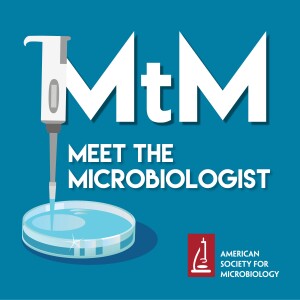
- Podcast Features
-
Monetization
-
Ads Marketplace
Join Ads Marketplace to earn through podcast sponsorships.
-
PodAds
Manage your ads with dynamic ad insertion capability.
-
Apple Podcasts Subscriptions Integration
Monetize with Apple Podcasts Subscriptions via Podbean.
-
Live Streaming
Earn rewards and recurring income from Fan Club membership.
-
Ads Marketplace
- Podbean App
-
Help and Support
-
Help Center
Get the answers and support you need.
-
Podbean Academy
Resources and guides to launch, grow, and monetize podcast.
-
Podbean Blog
Stay updated with the latest podcasting tips and trends.
-
What’s New
Check out our newest and recently released features!
-
Podcasting Smarter
Podcast interviews, best practices, and helpful tips.
-
Help Center
-
Popular Topics
-
How to Start a Podcast
The step-by-step guide to start your own podcast.
-
How to Start a Live Podcast
Create the best live podcast and engage your audience.
-
How to Monetize a Podcast
Tips on making the decision to monetize your podcast.
-
How to Promote Your Podcast
The best ways to get more eyes and ears on your podcast.
-
Podcast Advertising 101
Everything you need to know about podcast advertising.
-
Mobile Podcast Recording Guide
The ultimate guide to recording a podcast on your phone.
-
How to Use Group Recording
Steps to set up and use group recording in the Podbean app.
-
How to Start a Podcast
-
Podcasting
- Podcast Features
-
Monetization
-
Ads Marketplace
Join Ads Marketplace to earn through podcast sponsorships.
-
PodAds
Manage your ads with dynamic ad insertion capability.
-
Apple Podcasts Subscriptions Integration
Monetize with Apple Podcasts Subscriptions via Podbean.
-
Live Streaming
Earn rewards and recurring income from Fan Club membership.
-
Ads Marketplace
- Podbean App
- Advertisers
- Enterprise
- Pricing
-
Resources
-
Help and Support
-
Help Center
Get the answers and support you need.
-
Podbean Academy
Resources and guides to launch, grow, and monetize podcast.
-
Podbean Blog
Stay updated with the latest podcasting tips and trends.
-
What’s New
Check out our newest and recently released features!
-
Podcasting Smarter
Podcast interviews, best practices, and helpful tips.
-
Help Center
-
Popular Topics
-
How to Start a Podcast
The step-by-step guide to start your own podcast.
-
How to Start a Live Podcast
Create the best live podcast and engage your audience.
-
How to Monetize a Podcast
Tips on making the decision to monetize your podcast.
-
How to Promote Your Podcast
The best ways to get more eyes and ears on your podcast.
-
Podcast Advertising 101
Everything you need to know about podcast advertising.
-
Mobile Podcast Recording Guide
The ultimate guide to recording a podcast on your phone.
-
How to Use Group Recording
Steps to set up and use group recording in the Podbean app.
-
How to Start a Podcast
-
Help and Support
- Discover

MTS21 - Andrew Knoll - Ancient Life and Evolution
Dr. Andrew Knoll is the Fisher Professor of Natural History in Harvard University’s Department of Organismic and Evolutionary Biology, where he studies ancient life, its impacts on the environment, and how the environment, in turn, shaped the evolution of life. In recognition of the 200th anniversary of Charles’ Darwin’s birth and the 150th anniversary of the first printing of his book, “On the Origin of Species”, the American Society for Microbiology has invited Dr. Knoll to deliver the opening lecture, titled “Microbes and Earth History,” at the society’s general meeting in Philadelphia this year.
Before the dinosaurs, before trees and leaves, before trilobites, there were microbes. Vast, slimy layers of them covered the rocks and peppered the seas of the harsh, alien planet we now call Earth. Those slimy cells were our ancestors, and they played a defining role in changing that once-barren moonscape into the world we see today: a planet covered with diverse, striving life, topped by an oxygen-rich atmosphere. Dr. Knoll says he puts on his paleontologist’s hat and studies the fossil record to learn more about this ancient life, then he dons his geochemist’s hat to reconstruct Earth’s environmental history from the chemical signatures he finds in ancient sedimentary rocks. He weaves these two stories together to figure out how life has transformed the planet and how the planet has influenced the course of evolution.
In this interview, I talk with Dr. Knoll about what early earth must have looked like, his involvement with the Mars rover project, and how intelligent design concepts may well belong in high school curricula, but not in the context of science class.
More Episodes
 2025-01-06
2025-01-06
 2023-05-05
2023-05-05
Create your
podcast in
minutes
- Full-featured podcast site
- Unlimited storage and bandwidth
- Comprehensive podcast stats
- Distribute to Apple Podcasts, Spotify, and more
- Make money with your podcast
It is Free
- Privacy Policy
- Cookie Policy
- Terms of Use
- Consent Preferences
- Copyright © 2015-2025 Podbean.com




